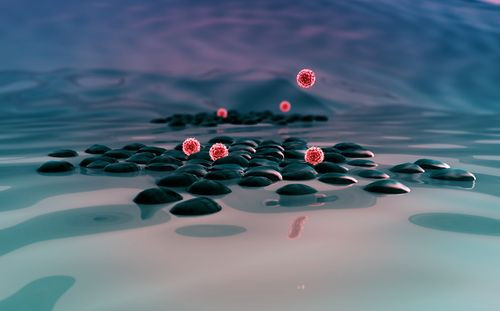Scientists 'Switch Off' Autoimmune Disease With Antigen-Specific Immunotherapy; Finding Brings Hope For MS Patients

In a classic example of the attacker-turned-savior, scientists have discovered how to turn aggressor cells that destroy the body’s own tissues into protectors that protect against diseases. A method called antigen-specific immunotherapy is an important breakthrough in targeted treatment against autoimmune diseases where the immune system attacks and destroys healthy body tissues. The discovery, made by researchers of the University of Bristol, was published Wednesday in Nature Communications.
In autoimmune diseases, such as multiple sclerosis (MS), type 1 diabetes, Graves' disease and systemic lupus erythematosus (SLE), the immune system is unable to distinguish between healthy tissues and harmful antigens. The result is destruction of tissue, abnormal growth, or changes in organ function. Autoimmune diseases are among the top 10 leading causes of death worldwide. MS is estimated to affect around 100,000 people in the UK and 2.5 million people around the world.
Treatments to reduce the symptoms of such disorders include taking immunosuppressants such as corticosteroids. But these come with their own set of associated side effects, like infections, development of tumors, and disruption of natural regulatory mechanisms. With antigen-specific immunotherapy, scientists were able to selectively target the cells that cause autoimmunity and reverse their role. The aggressive cells were converted to cells capable of protecting against disease.
This method of converting cells has been used earlier in allergy treatment. Known as "allergic desensitization," it involves teaching the immune system to tolerate allergens and get used to them. Antigen-specific immunotherapy for autoimmune diseases involves administration of fragments of the proteins into the body. These proteins are normally the target for attack and by gradually increasing the dose of antigenic fragment injected, the autoimmune response corrects itself.
In order to figure out what exactly happens inside the immune cells, the scientists observed the genes and proteins that were “switched on” and “off” by the antigen fragments. They found changes in the gene expression that result in conversion of aggressor cells into protective ones. So the rogue cells do not attack tissues of the body but are still ready to fight against germs that may attack the body.
More specifically, the action of this intervention against targeted cells eliminates the need to use immune suppressive drugs, and hence their associated side effects.
"Insight into the molecular basis of antigen-specific immunotherapy opens up exciting new opportunities to enhance the selectivity of the approach while providing valuable markers with which to measure effective treatment,” said lead researcher Professor David Wraith in a press release. “These findings have important implications for the many patients suffering from autoimmune conditions that are currently difficult to treat."
Source: Burton B, Wraith D, Britton G, et al. Sequential transcriptional changes dictate safe and effective antigen-specific immunotherapy. Nature Communications. 2014.
Published by Medicaldaily.com



























